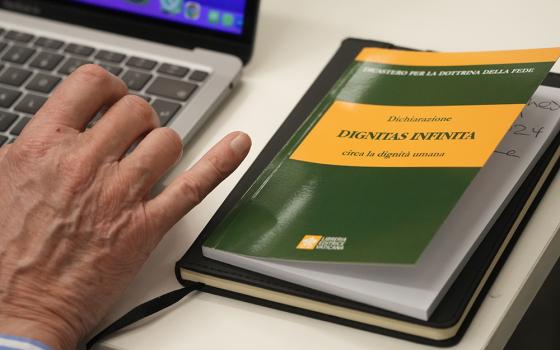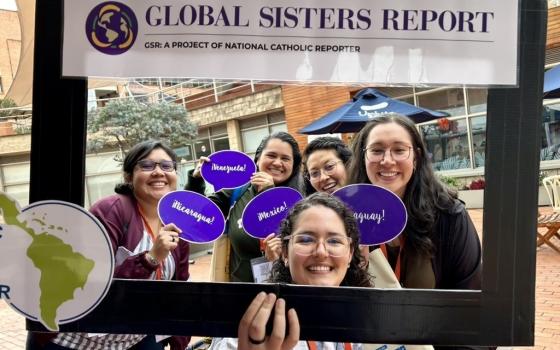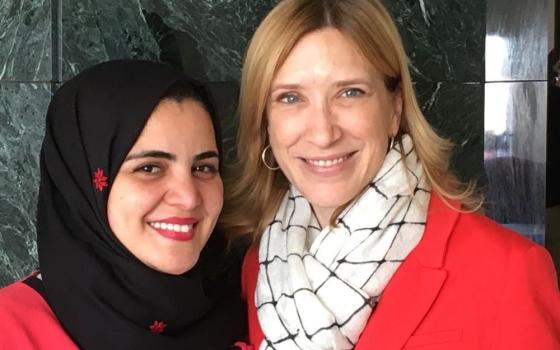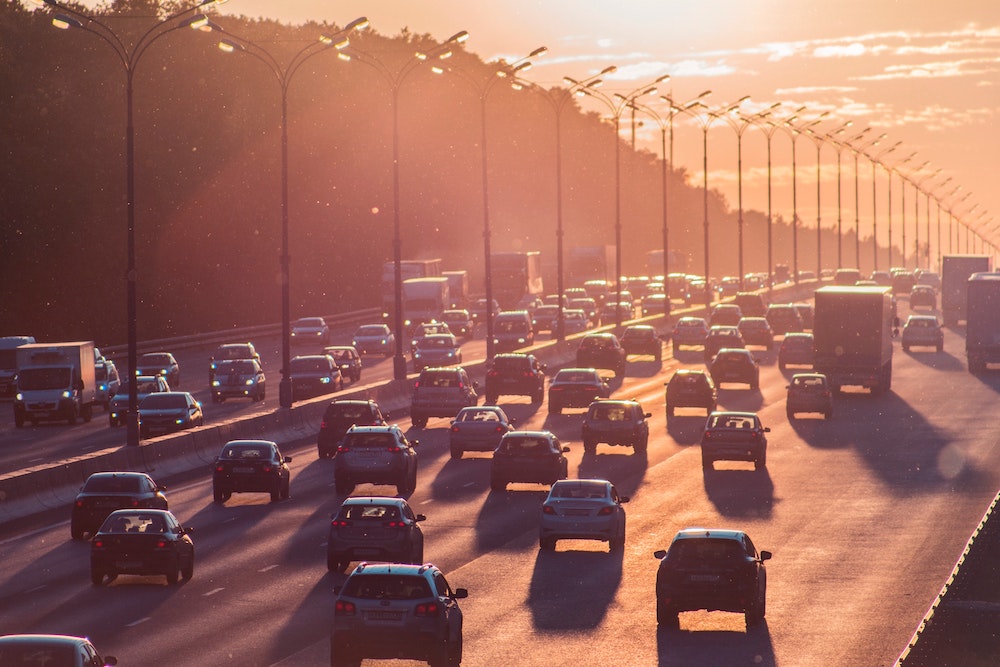
Transportation and food production are two major sources of planet-warming greenhouse gas emissions. (Unsplash/Alexander Popov)
Maybe you gave up meat for Lent, turned down the thermostat a couple of degrees, or made a conscious effort to use less plastic. As the liturgical season draws to a close, you may wonder how to make that habit permanent — or whether your individual behavior even makes a difference, given the enormity of the planet's climate emergency.
Experts say the answer to that second question is definitely "yes," and it's easier to keep up climate-friendly practices started during Lent if you share the journey with like-minded people.
"Individual action really matters, because individual action times a million is huge. So every little thing a person does in their own life makes a difference," said David Downie, who heads the political science department at Jesuit-run Fairfield University in Connecticut. "It's the car they drive, it's the insulation of their home, it's how they use energy and the amount of energy they use."
For Caroline Bader, director of the interfaith group GreenFaith's Living the Change program, individual shifts in behavior go hand in hand with advocating for systemic change, and both are needed to transform the world.
"It's not an either/or, it's yes/and," she told EarthBeat. "That's very important. One cannot go without the other."
For Bader and Martin Kopp, the program's co-director, the climate emergency calls people of faith to an integral response involving personal transformation, leadership of institutions and systemic change.
That approach echoes Pope Francis' emphasis on integral ecology and ecological conversion in "Laudato Si', on Care for Our Common Home." He calls for personal conversion, holding up St. Francis of Assisi as a model, but adds that bringing about wider social change must by done by individuals forming community networks, "and not simply by the sum of individual good deeds"
"When it comes to [individual] choices that can be made, it is important to journey with people toward the behavior change that has the highest impact in terms of emission reductions," Kopp told EarthBeat.
Advertisement
Those areas — generally involving transportation, food and home energy use — are ones in which people can make individual lifestyle changes and also advocate for policy changes.
Based on a study published in 2017, which examined the effectiveness of different kinds of individual actions, GreenFaith suggests steps people can take, from getting rid of the car — one of the most effective — to lower-impact changes like switching to a plant-based diet or washing clothes in cold water.
Downie notes that many steps individuals can take, such as improving home energy use, lower household costs in the long run and can be considered an investment.
Nevertheless, said Kopp, changing individual behaviors "is not only about delivering climate friendly lifestyles — it's way, way, way, way deeper than that for a person, and it is embedded in a spiritual journey."
Kopp's own journey began a decade ago, when he spent several months in India and came face to face with that country's environmental problems.
"The smells, the sheer chaos of Indian cities, the plastic mountains everywhere in the streets, the rivers and the lakes that are bright green" called for a personal response, he said.
Knowing that transportation and food production are two major sources of planet-warming greenhouse gas emissions, Kopp, who lives in France's Alsace region, opted to give up personal air travel and cut back on meat in his diet — a big step for someone accustomed to eating meat at every meal.
At first, he decreased his meat consumption to a couple of times a week, but couldn't manage to cut back more. So during Lent in 2018, he reduced by half again. At the end of the 40 days, he decided to keep going, and he now eats meat one day a week, usually at special meals with family or friends.
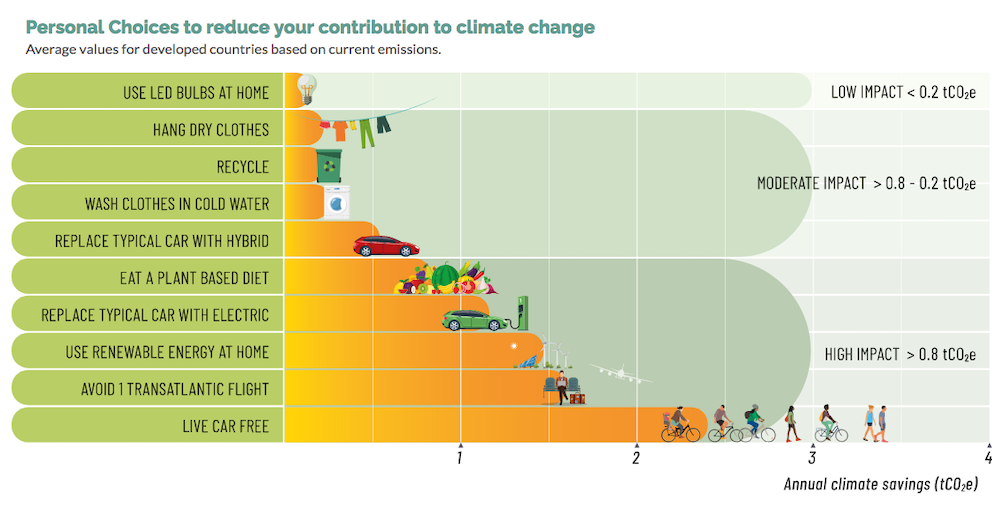
Your choices can reduce contributing to climate change. (Graphic courtesy of GreenFaith, adapted from Wynes and Nicholas, 2017, Environmental Research Letters)
Giving up things like holiday trips by plane or favorite dishes may provoke a sense of loss or grief, he said, so it's good to share the journey with like-minded people who not only can support and hold each other accountable, but who also celebrate the changes.
"If you live that journey within a group — with friends, family or in your community — [it] helps you commit, it helps you last, it helps you progress, it helps you share what you experience, the challenges and joys," Kopp said.
When individuals make lifestyle changes, they are preaching without words, he added, which is way of encouraging leaders to take action. A politician is more likely to think seriously about public transit policy, for example, if approached by constituents who have given up their cars.
That link between personal commitment and political advocacy came to the fore with a GreenFaith-sponsored day of climate action on March 11. The group's list of 10 key demands — in areas including finance, biodiversity, energy, jobs and community leadership — offer opportunities for both personal lifestyle change and political lobbying.
For Downie of Fairfield University, once the personal commitment is made, the most important policy change that people of faith can seek at the national, state and local level is for governments to put a price on carbon. That would force companies and consumers to pay the real cost of the fossil fuel used for energy, transportation and manufacturing.
Although such a carbon tax would raise the price of many products, it would encourage more efficient use of fossil fuels or a shift away from them. The economic costs could be offset by reducing other taxes, especially for low-income consumers, he said.
Amid the lockdowns and other constraints of the pandemic, it may have been hard to find things to give up during Lent, Bader said, but it's still "a good time for reflection and for really being true to your own values."
And those climate-friendly commitments made during Lent can become a personal ecological conversion that spurs advocacy on policy issues.
Anyone can "start the journey right now, right here," she added. "You don't need to wait for a decision to be taken, you don't need to wait for a conference to come together. You can start right now. And that's very compelling, because it's encouraging and motivating and empowering for people."








